Zoldria 4mg Zoledronic Acid Injection
$100.00 – $900.00Price range: $100.00 through $900.00
Zoldria 4mg Injection is used to treat and prevent bone disorders, including osteoporosis, Paget’s disease, and bone complications from cancer. It works by inhibiting bone breakdown, helping maintain bone density and reduce the risk of fractures.
| Pack Size | Price | Price / Unit | Quantity | |
|---|---|---|---|---|
| 1 Injection | $100.00 | $100.00/ unit | ||
| 5 Injections | $475.00 | $95.00/ unit | ||
| 10 Injections | $900.00 | $90.00/ unit |
Looking for bulk / B2B pricing? | Send Inquiry |

| SKU | 11088 |
| Manufacturer | Cipla Limited |
| Categories | Menopause |
| Delivery Time | 10 - 14 Working Days |
| Strength | 4mg |
Introduction to Zoldria 4mg Injection
Zoldria 4 mg Injection belongs to bisphosphonate class, containing an active ingredient, Zoledronic Acid, also known as Zoledronate. It is used to treat the porosity or weakening of the bones (Osteoporosis) caused mainly after Menopause (postmenopausal Osteoporosis), also due to usage of steroids or other medicines, changes in hormone levels, inadequate diet intake, etc. Apart from that, Zoldria Injection can reduce the risk of breakdown of bones during cancer.
It is also used to treat raised levels of calcium in the blood in people who have cancer. This medicine is also used in the treatment of Paget’s disease in which disruption of the replacement of old bone cells with new bone cells occurs. Osteoporosis is a bone disease which occurs when the body loses too much bone (calcium) into the blood, makes too little bone, or both. As a result, bones become porous, weak, less and fragile, indicating that they may get broken easily from a minor fall or slightest trauma.
Uses of Zoldria 4mg
Zoledronic acid is a bisphosphonate medication commonly used to treat various bone-related conditions. It’s available under different brand names, and “Zoldria” might be one of them. However, it’s important to note that medication names can vary by region, and I recommend confirming the specific name and formulation with a healthcare professional or your prescribing doctor.
- Osteoporosis
- Hypercalcemia
- Bone Metastases
- Hypercalcemia of Malignancy
- Prevention of Bone Loss
- Adjuvant Treatment for Early Breast Cancer
How Does Zoldria Works?
Zoldria 4 mg Injection has an active ingredient, Zoledronic Acid, which is a bisphosphonate. This medicine acts by suppressing the activity of osteoclasts, the cells present in the bone itself and responsible for desorption of calcium from bones which destroy bone only. This injection, however, strengthens the bones & minimizes the risk of fractures.
- Inhibition of Osteoclast Activity
- Binding to Bone Mineral
- Inhibition of Bone Resorption
- Promotion of Bone Formation
- Reduction of Fracture Risk
- Duration of Action
Side Effects of Zoldria 4mg Injection
Common Side Effects
- Headache
- Back pain
- Musculoskeletal (bone, muscle or joint) pain
- Diarrhea
- Breathlessness
- Fatigue
- Constipation
- Fever
- Anemia (low number of red blood cells)
Serious Side Effects
- Hypersensitivity reactions
- Redness or swelling of the eyes
- Abdominal and stomach pain
- Nausea and vomiting
- Heartburn
Dosage of Zoldria 4mg
Zoldria 4mg Injection is typically administered as a slow intravenous infusion over at least 15 minutes, depending on the patient’s condition. For the treatment of bone-related complications in cancer, the usual dosage is 4mg every 3 to 4 weeks, along with calcium and vitamin D supplements to maintain bone health.
In patients with hypercalcemia of malignancy, a single dose of 4mg is often prescribed. The dosage may need adjustment in individuals with kidney impairment, and regular monitoring of kidney function and blood calcium levels is recommended. Always follow your doctor’s instructions regarding dosage and frequency.
How To Manage Side Effects?
- Open Communication
- Preventive Measures
- Pain Management
- Supplemental Calcium and Vitamin D
- Monitoring
- Medication Review
- Lifestyle Modifications
- Proactive Dental Care
- Regular Check-Ups
- Emergency Information
Warning & Precautions
- Administer under medical supervision only.
- Avoid if you have severe kidney disease.
- Ensure adequate hydration before the injection.
- Not recommended during pregnancy or breastfeeding.
- Take calcium and vitamin D supplements as advised.
- Risk of jawbone problems (osteonecrosis); get a dental checkup.
- Caution in heart patients due to risk of fluid retention.
- Report symptoms like muscle spasms, numbness, or severe pain.
- Avoid driving if you feel dizzy after the injection.
Frequently Asked Questions
1. How long should I receive Zoldria?
Zoldria should be received in the dose and duration as advised by your doctor. The medicine takes around 6 months to show its maximum benefits on bones. However, in some cases, the doctor may suggest Zoldria for a longer duration. The exact duration will depend on the condition you are being treated for.
2. How is Zoldria administered?
Zoldria will be given to you only by a doctor or a nurse into a vein (intravenously). Your doctor will decide the correct dose and duration of Zoldria for you depending upon your age, body weight and disease condition.
3. What lifestyle changes should I follow while receiving Zoldria?
To get maximum benefit from Zoldria, include calcium- and vitamin D–rich foods in your diet and spend time in sunlight for natural vitamin D. Quit smoking and limit alcohol intake, as both can weaken bones. Engage in regular exercise such as walking, low-impact aerobics, and body-weight strength training to support bone health.
4. Can Zoldria cause constipation?
Yes, Zoldria may cause constipation in some individuals. To manage this effect, try to eat more high-fiber foods such as fresh fruit, vegetables, cereals and drink plenty of water. If this does not help, inform your doctor for receiving alternate treatment for constipation.
| Pack Size | 1 Injection, 10 Injections, 5 Injections |
|---|---|
| Price/Unit | $100/unit, $90/unit, $95/unit |
Be the first to review “Zoldria 4mg Zoledronic Acid Injection” Cancel reply
Related Products
Menopause
Menopause
Menopause
Menopause
Menopause


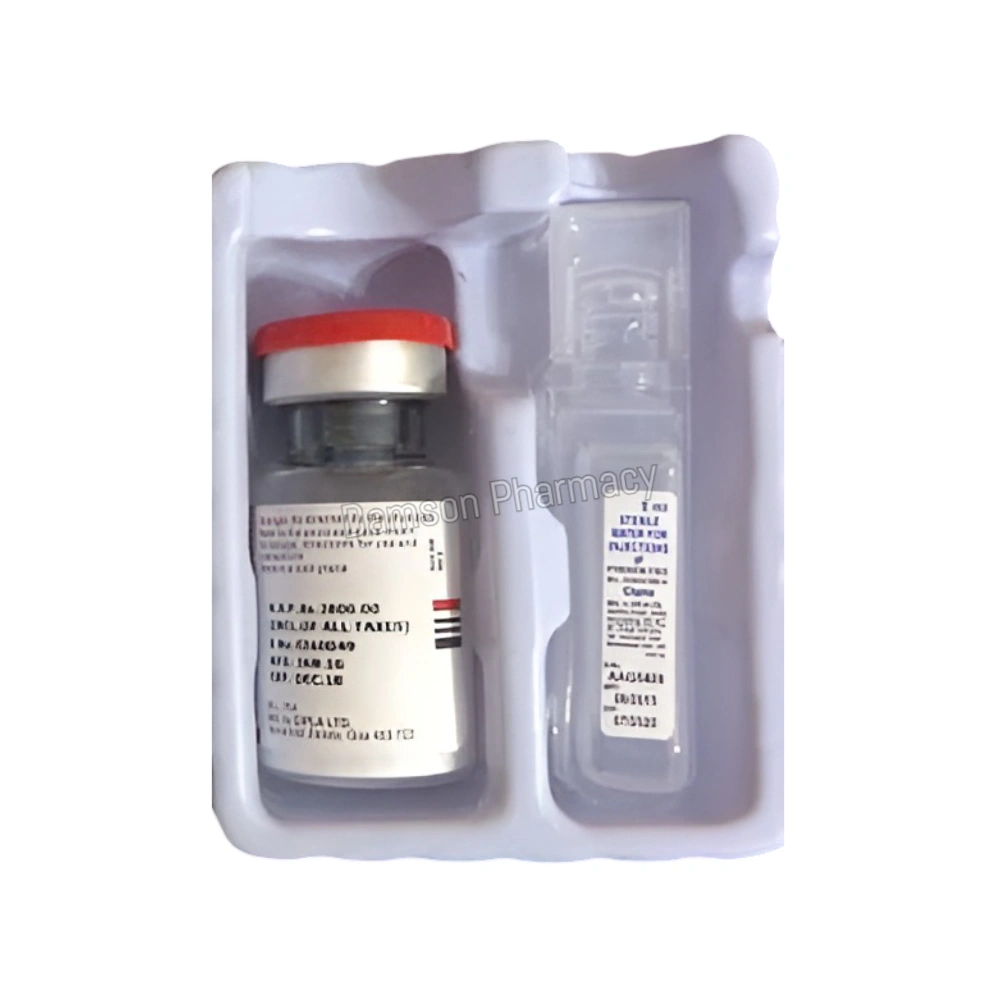
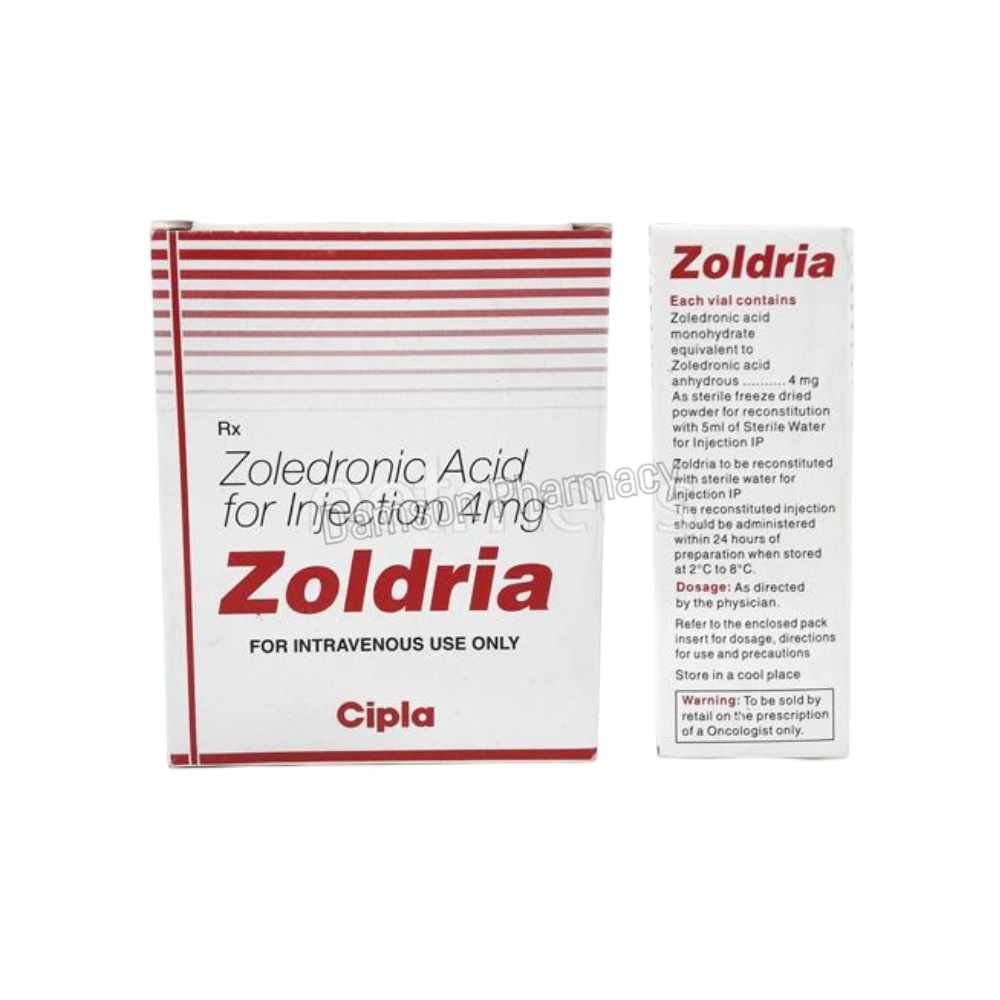
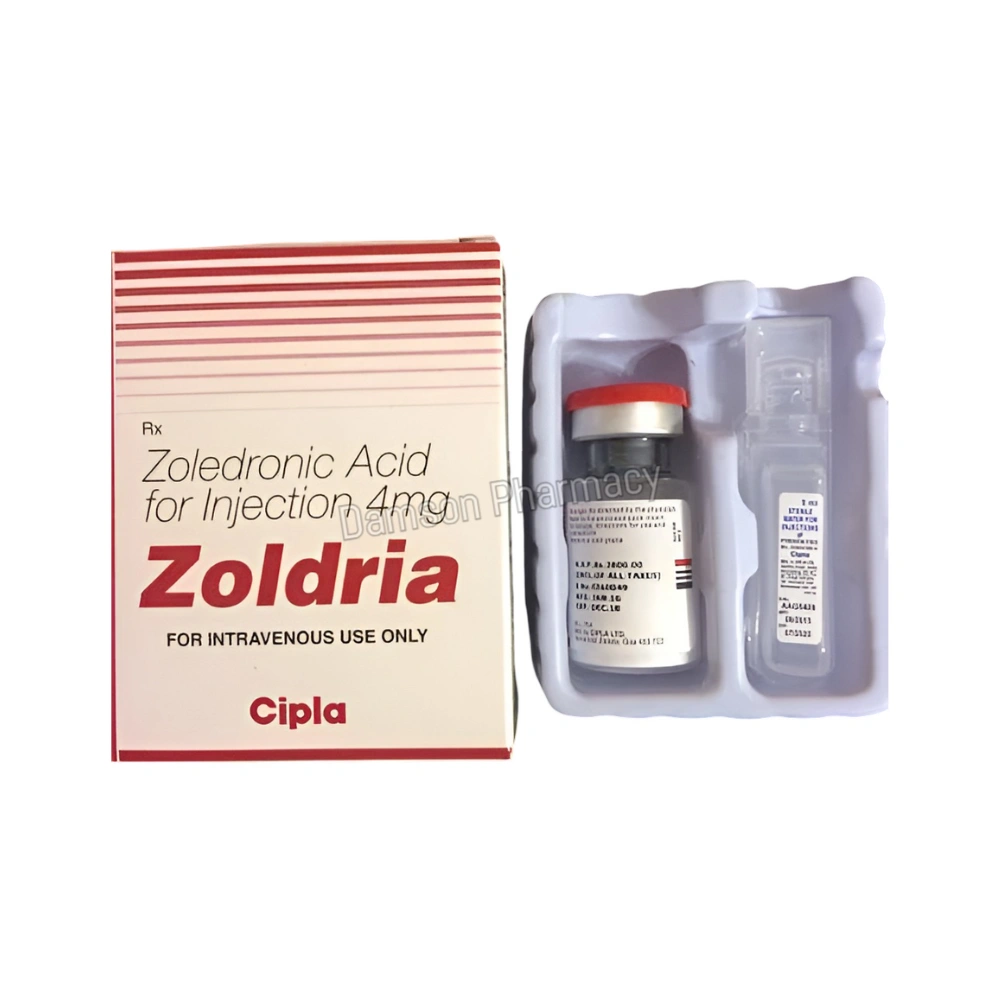

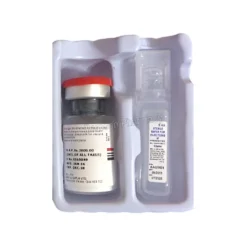
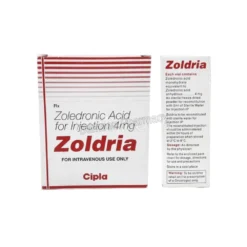
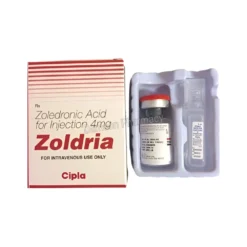





Reviews
There are no reviews yet.